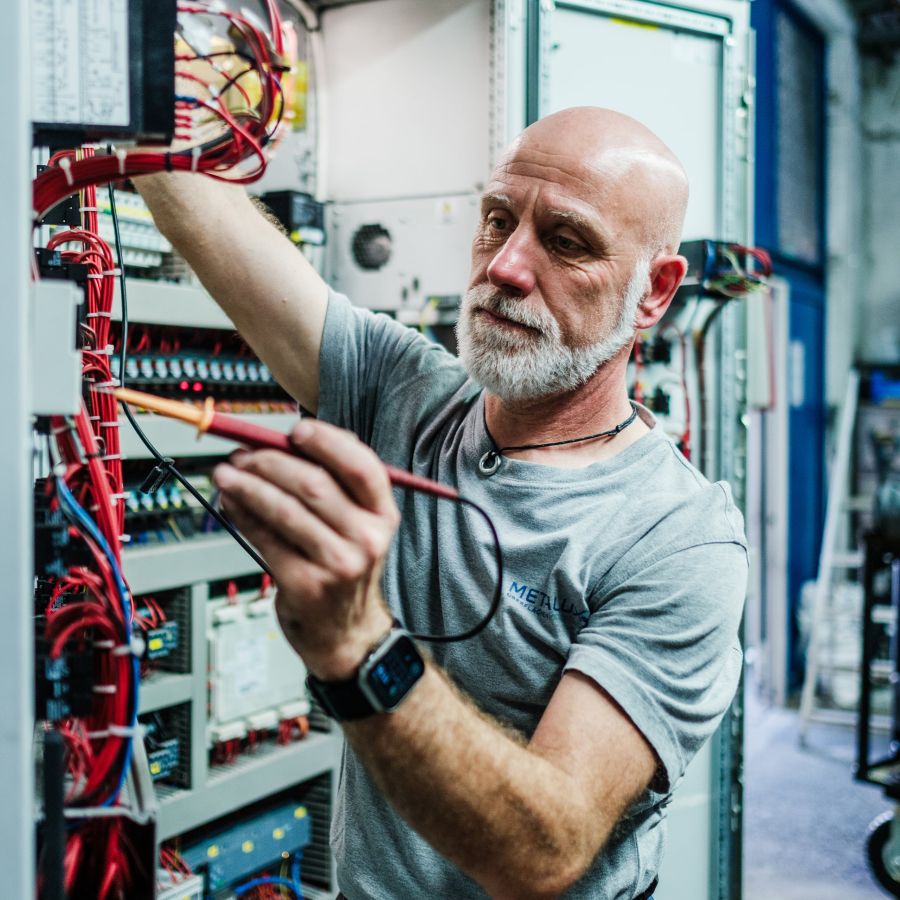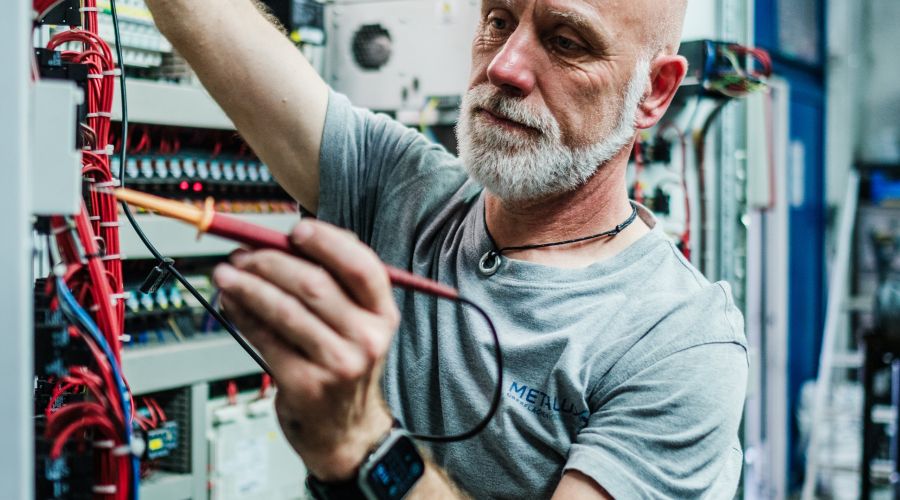Surface finishing in
electrical engineering
Protection, conductivity and precision for electronic applications
In electrical engineering, conductivity, corrosion resistance and absolute precision count. Surfaces must function reliably, often in the tightest of spaces and under demanding conditions. Metalux offers specially customised finishing processes for components that have to deliver maximum performance in electronics and electrical engineering.
Whether contacts, housings, plug connections or thermally conductive and live components. The requirements in electrical engineering are high. Targeted surface finishing can improve electrical properties, reduce susceptibility to corrosion and ensure long-term functionality.


Processes such as electroless nickel plating, passivation, chromating of aluminium or powder coating ensure the necessary functionality and durability, even with high packing densities and miniaturised components.
With its own laboratory, certified processes and a high level of consulting expertise, Metalux supports you from development to series production. Reliably, precisely and on time.